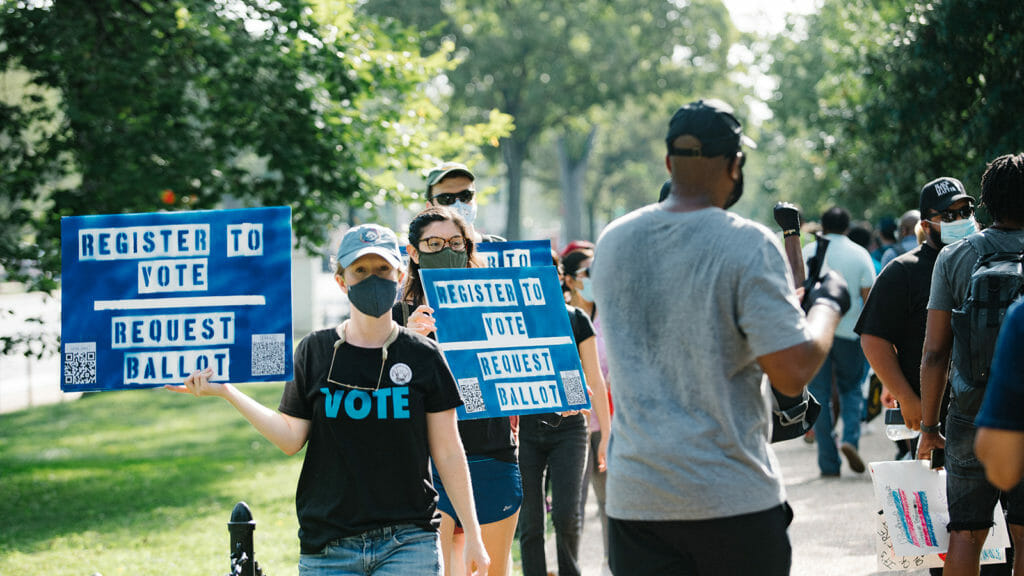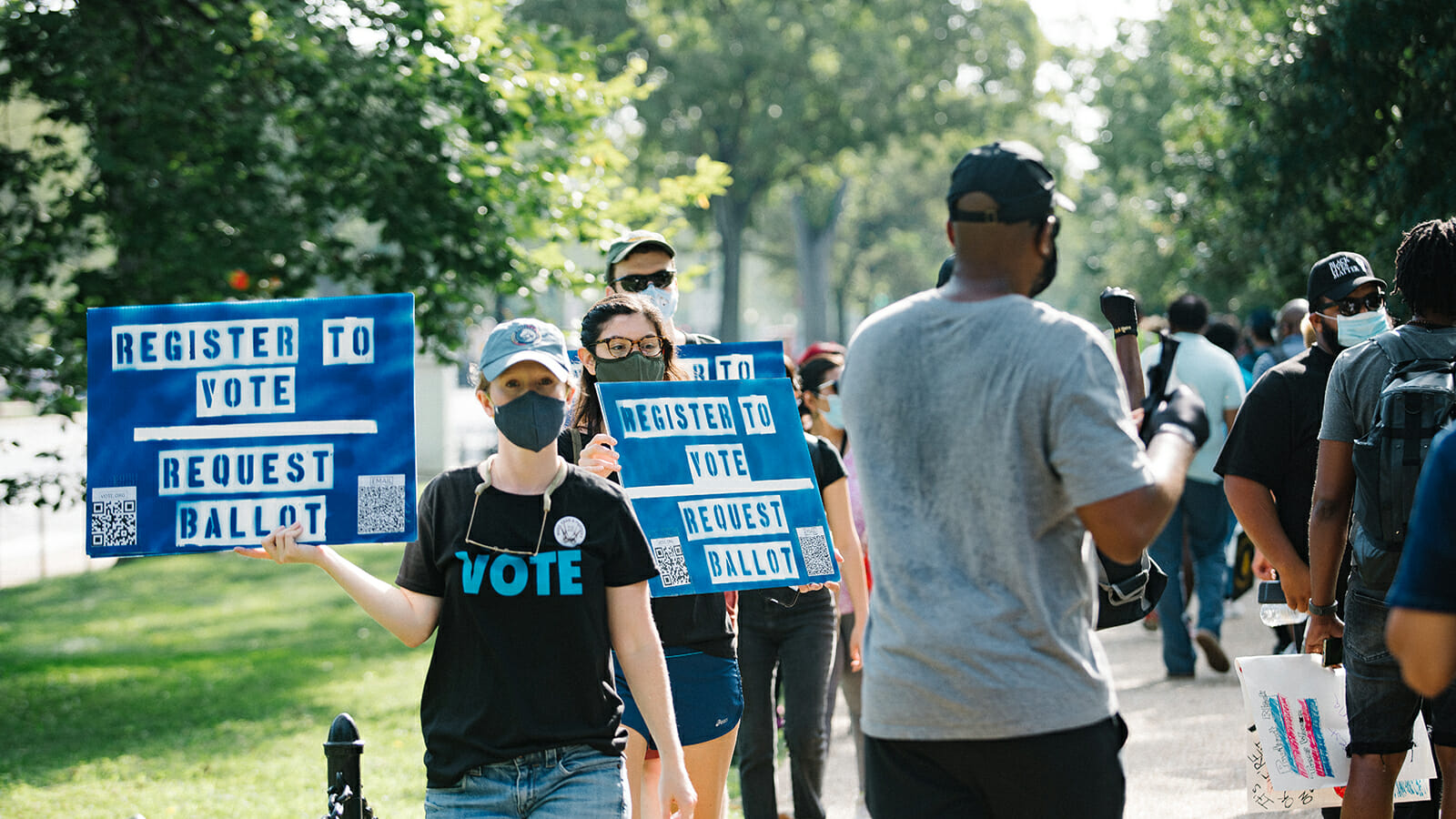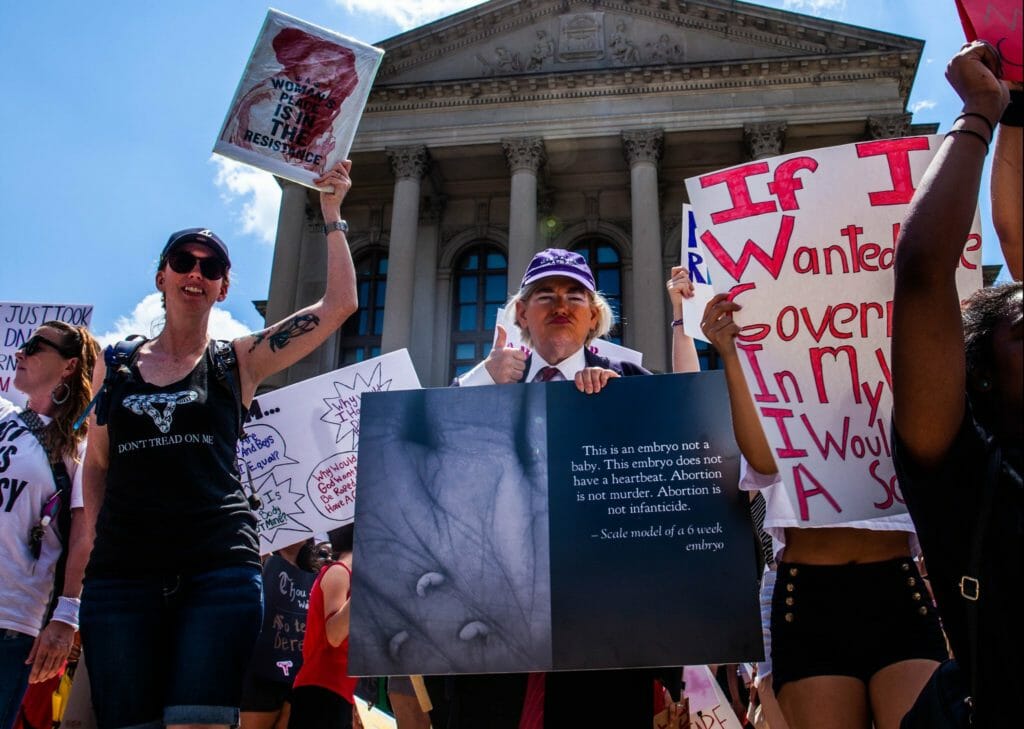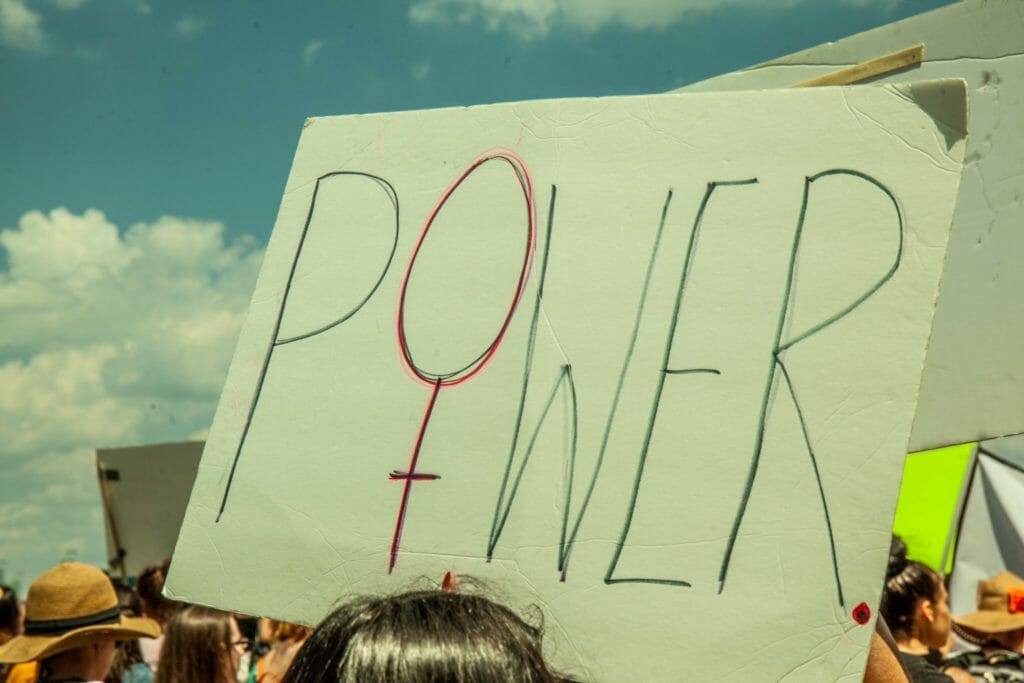
ATLANTA — On Thurs., March 25, Gov. Brian Kemp signed SB 202, Georgia’s newest voter suppression bill, alongside six white male legislators underneath a framed image of a plantation. While Kemp signed the bill behind closed doors, which is against regular practice of signing laws before the public, Rep. Park Cannon was arrested for knocking on Kemp\’s door in an attempt to speak for her constituents in opposition to this bill and to witness the bill’s signing.
SB 202 was one of a slew of voter suppression bills introduced and is the most recent installment in already existing voter suppression bills, such as HB 316 which was enacted following Georgia’s 2018 gubernatorial election. Following its enactment, HB 316 was litigated by Fair Fight Action and other advocacy groups. Similarly, SB 202 currently faces four lawsuits.
While Republicans mounted extreme coordinated efforts to suppress the vote, specifically targeting urban areas as well as low-income communities of color, and succeeded with SB 202, there were seven voter empowerment bills that were also introduced during Georgia’s most recent legislative session. All were sponsored by Democrats.
To learn more about how a bill becomes law in Georgia and for other voter advocacy resources, visit Civic Georgia’s website.
Here is a list of the voter empowerment bills that didn’t make it in Georgia.
SB 26 would have provided absentee ballot drop boxes at every early voting location. SB 202, by comparison, introduces severe restrictions on both drop boxes and absentee ballots.
Drop boxes were used at higher rates last year since it was an option for voters, especially those who are immunocompromised or differently-abled. under SB 202, drop boxes are only allowed at early voting locations, which will inherently cut down on locations in DeKalb and Fulton counties. The drop boxes will also only be available during voting hours, which defeats the purpose of drop boxes for those who choose to utilize that form of voting because of their work schedules or other reasons.
Further, drop boxes now have to be “human monitored” at all times, which will contribute to the taxpayer cost of elections with this new law. The total estimated cost with SB 202 in effect is about $50 to $60 million, since it takes away grant money, doesn’t allocate any additional funding, and accrues more costs through creating so many restrictions.
SB 202 also contains a provision that bans government entities from sending absentee ballots to voters. Other states, like Colorado, Washington and others, automatically send absentee ballots to registered voters. Additionally, Georgia’s new law also makes it much more difficult for voters to apply for an absentee ballot by requiring a driver’s license number, state ID number, or other documentation. This disenfranchises those who do not have a driver’s license, like those who have had their licenses suspended or revoked, or state-issued ID, such as the houseless community.
Currently, Georgians convicted of “felony involving moral turpitude” cannot vote. Those on probation for a misdemeanor are eligible as well as those serving a first offender sentence for a felony as long as that status hasn’t been revoked, according to the Georgia Justice Project.
SB 79 would have redefined the vague description of felonies that involve “moral turpitude,” and HB 101 would have entirely removed the restriction. The right to vote for convicted felons has been restored in Virginia through a midterm ballot initative in 2018, except for those convicted of murder or a felony sex act.
According to The Sentencing Project, about 5.2 million people were not able to vote in 2020 because of laws that temporarily or permanently ban people convicted of felonies from voting. Maine and Vermont are the only two states that have no restrictions on convicted felons’ right to vote. Georgia’s restrictions extend to those in prison, on parole, and on probation. These laws, like many voter suppression and restriction laws, affect Black people at far greater rates.
As the project explains, One in 13 African Americans of voting age is disenfranchised, a rate more than four times greater than that of non-African Americans. Over 7.4 percent of the adult African American population is disenfranchised compared to 1.8 percent of the non-African American population.
According to Reform Georgia, there were over 266,000 Georgians who could not vote due to felony disenfranchisement in 2018. Of them, 211,511 were under correctional supervision while living in their community. Further, 188,511 of those people were on felony probation living in their community. Of those, 31.9 percent were convicted with felony drug offenses and 35.4 percent were for property offenses. Additionally, 54,806 Georgians were disenfranchised due to felony incarceration, with 47 percent of 2018 prison admission being non-violent crimes (property or drug charges).
HB 121 would have eliminated “use it or lose it” voter purging laws. Georgia has disenfranchised hundreds of thousands of voters through its voter purges, including the record-breaking purge in July 2017 which kicked a half million voters off the rolls. On Dec. 16, 2019, Georgia purged 300,000 more voters, which Secretary of State Brad Raffensperger later admitted was erroneous.
This voter purge law is one of several ways Georgia election law has systematically disenfranchised and targeted minority voters, in addition to polling location closures, exact match, state ID laws, and additionally burdensome restrictions like those presented in SB 202. While voter purges are intended to keep voter rolls up to date, only removing those who are deceased or have moved out of the state, Georgia Republicans have used the law to kick off those they deem to be “inactive” voters through the “use it or lose it” clause.
SB 99 would have made it so early voting locations could remain open for Election Day.
HB 77 would have made it so voters can vote at any precinct in the county on Election Day. Currently in Georgia, voters can vote at any precinct in the county during the early voting period, but not on Election Day.
HB 113 would have established same day registration and voting during early voting periods and on Election Day. As of 2020, a total of 21 states plus the District of Columbia have enacted same day registration (SDR).
The Georgia General Assembly ended its last legislative session on Fri., April 2. The assembly is responsible for redistricting following the U.S. Census which was conducted last year. Redistricting will begin in the fall and each Georgia state legislator is up for re-election in 2022.




